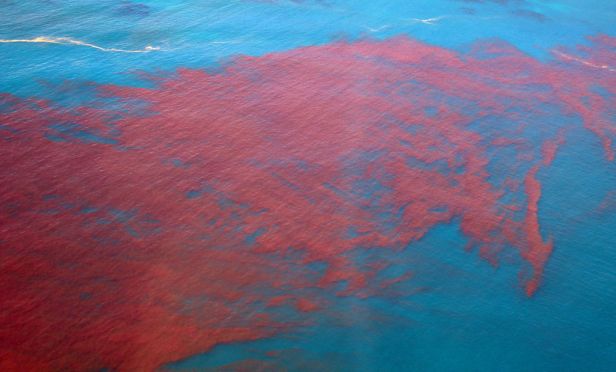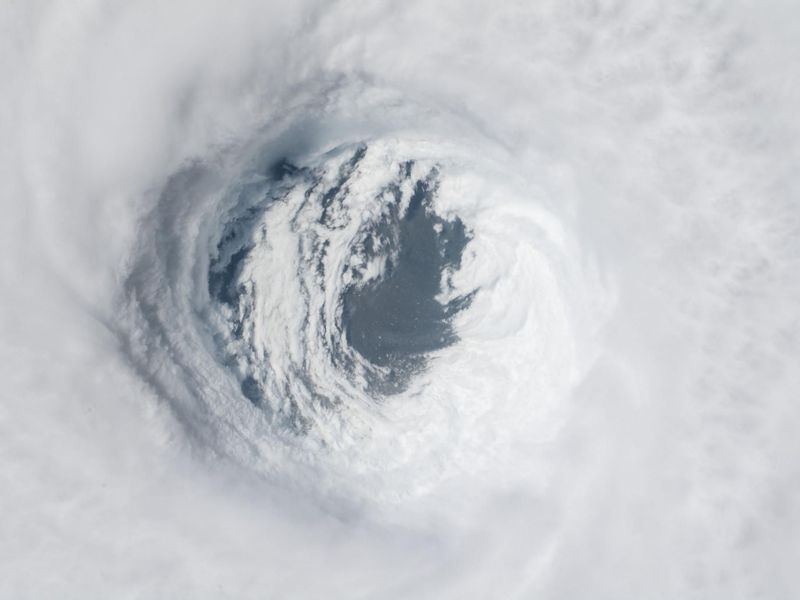Hurricane Michael made landfall along the Florida Panhandle Wednesday, devastating the region with winds of up to 155 miles per hour and storm surges of up to 14 feet (NASA). The storm could also trigger a welcome dissipation of the region’s red tide, a 145-mile stretch of toxic algal bloom that has plagued the coastal state’s marine wildlife and beaches since last November. Or, Michael could do the complete opposite, generating excessive flooding that exacerbates the algae’s harmful effects. “In the past, it’s gone either way!”

In one scenario, choppy waters brought on by the hurricane break up and disperse the red tide bloom, moving it offshore and leaving it to weaken as temperatures decrease. Moreover an oeanographer predicts the algae couldn’t survive onshore for an extended period of time, as it would be unable to find sufficient nutrients.
On the other hand, the storm could push the red bloom inland, sending toxins into the air and sparking human respiratory issues similar to those caused by tear gas. It’s also possible that heavy rains brought on by the hurricane could make septic tanks, sewage systems and ponds overflow and release nutrients that actually fertilize the red tide, making it worse.
Back in history
A similar situation may have played out in 2004, when four hurricanes hit Florida in quick succession. That year, the state experienced one of the worst red tide outbreaks in its history; a so-called “dead zone” that stretched from New Port Richey to Sarasota was declared completely devoid of oxygen and marine life.

Then again, Hurricane Katrina, a 2005 storm that devastated the Florida peninsula and Louisiana, broke up the dead zone by pushing the red tide north.
Red tides
Red tide is an annual occurrence along the southwest Florida coast. A type of algae known as Karenia brevis is responsible for the toxic bloom, which can leave waters colored with a muddy brown or red hue. In small quantities, K. brevis is relatively harmless, but under certain conditions, it rapidly reproduces and releases toxins into both the water and the air.
Fish, birds, manatees, sea turtles and pygmy whales are amongst the creatures that have fallen victims to this latest bout of red tide. Humans with existing respiratory conditions, as well as those who unwittingly consume contaminated seafood, have also been affected.
Florida’s current red tide outbreak has troubled the area for nearly a year, making it the longest one in more than a decade. Toward the middle of August, Florida Governor Rick Scott declared a state of emergency in the communities most devastated by the algal bloom, which poses a risk to not only the region’s wildlife and human communities, but the tourism industry residents rely on for their livelihood.
Ultimately, hurricanes’ impact on red tide, and more specifically, Hurricane Michael’s effect on Florida’s current algal crisis, remains difficult to predict. But this is the first time the state has had to tackle severe red tide and a severe hurricane concurrently.
By the way, you can support your Strange Sounds by becoming a Patron on Patreon or donating through Paypal. Please and thank you.
Smithsonian Mag – Hurricane Michael Could Worsen—or Alleviate—Florida’s Toxic Red Tide Outbreak











